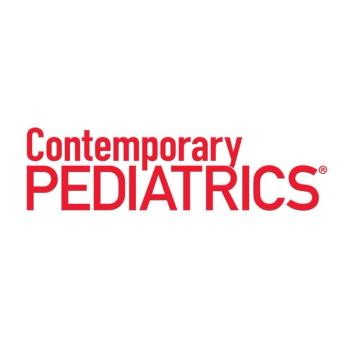
Tell your patients to get their annual flu vaccines for best protection against illness.

Tell your patients to get their annual flu vaccines for best protection against illness.

The burden of sleep disorders is high among the transgender or gender-nonconforming population and this study evaluated the role of gender-affirming therapy on that relationship.

A recent study found that infants born to mothers with maternal comorbidities, such as preeclampsia, had higher risk of poor kidney function.

New updates to the Special Supplemental Nutrition Program for Women, Infants, and Children would provide more nutritious options to low-income families.

Researchers from New York University have found that children are vulnerable to deceptive marketing of unhealthy food because of a lack of government oversight.

A recent poll showed that some parents do not discuss vaccines with their child’s regular doctor, with many choosing to not have their child receive any vaccines.

Cleveland Clinic begins charging for doctors’ time spent responding to some electronic messages

A look at what the Contemporary Pediatrics® team covered this week.

Commonwealth Fund survey of 10 nations finds primary care in global crisis.

In a recent study, it was found that the rate of hospital admissions and assessments for eating disorders significantly increased after the onset of the COVID-19 pandemic.

In a recent study, investigators found that life-threatening neurologic conditions from severe acute COVID-19 were more frequent in 2021 than 2020.

HHS secretary says federal government will need quicker access to national data to address future health emergencies

In a recent study, racial minorities of an older age with non-classic cutaneous manifestations were more often to present with juvenile idiopathic inflammatory myopathies after COVID-19 infection.

New data presented at ACAAI 2022 observed various trends in allergies associated with eczema and eosinophilic esophagitis, comparing observed data with that of patients in the United States.

At ACR Convergence 2022, Amit Golding, MD, PhD, outlined drugs recently approved by the FDA, and discussed the requirements for biosimilars to meet approval.

Dermavant Sciences recently announced positive results for VTAMA (tapinarof cream, 1%) for treatment of atopic dermatitis in children aged as young as 2 years.

At ACR Convergence 2022, Hyun Son, PharmD, discussed the role of the FDA’s Drug Shortage Staff in preventing and mitigating drug shortages.

Tech company surveys patients who say online experience with doctors’ offices is not great.

New data from the International Pediatric Sleep Association (IPSA) Congress 2022 used smart bed technology that revealed consistent findings to previous studies.

Income, price levels, Medicaid expansion all are factors in state-level analysis.

A look at what the Contemporary Pediatrics® team covered this week.

‘Charming Kitten’ believed to be a front for Islamic Revolutionary Guard Corps, according to HHS’ cybersecurity agency.

A recent study found that children born to mothers who had consumed caffeine during pregnancy often had a reduced height during childhood compared with those born to mothers who had not consumed caffeine.

Medical practices must go beyond simply offering competitive salaries and benefits packages to attract new talent and keep their best clinicians and administrative staff working for them.

The US Food and Drug Administration has encouraged parents to avoid using infant head shaping pillows to manage head shaping conditions such as flat head syndrome or craniosynostosis.

A real-world study determined the efficacy of mRNA vaccines for protection against COVID-19 in adolescents.

Confidence in vaccines is lower post-pandemic across all demographic groups.

Infants born to mothers with COVID-19 infection during pregnancy often experienced positive birth outcomes from April 2020 to October 2020, and COVID-19 transmission was rare.

In a recent study, children and adolescents with ADHD often had to change treatment in instances of ineffectiveness or complications.

Tina Q. Tan, MD, FAAP, FIDSA, FPIDS, discussed the potential threat of a “triple epidemic” of RSV, influenza, and COVID-19, and how pediatricians can identify these viruses in their communities.